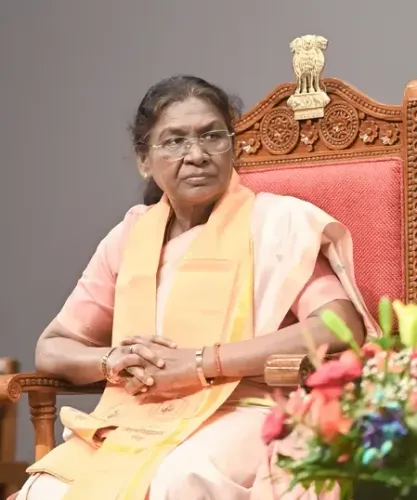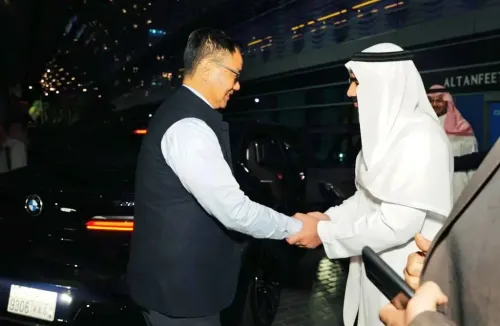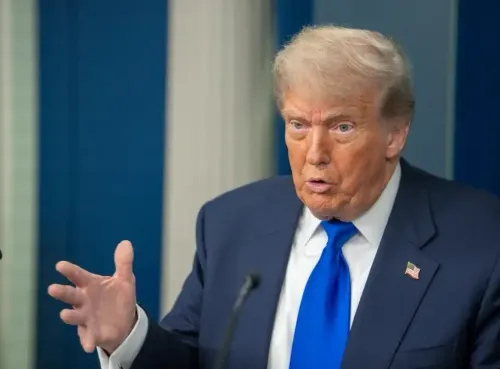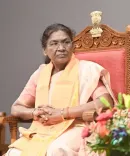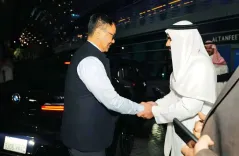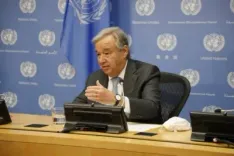Historic Peace Pact Formed Between Shia and Sunni Tribes in Kurram, Pakistan
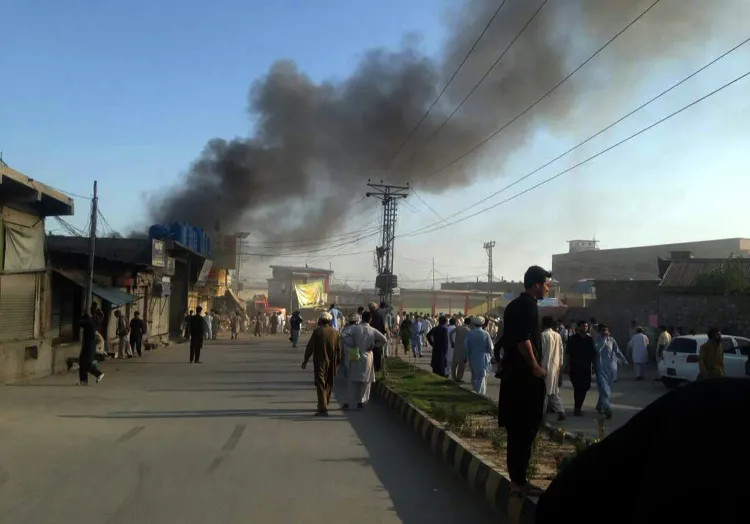
Islamabad, Jan 1 (NationPress) After extensive negotiations, a 14-point peace pact was finalized between opposing tribal groups from different sects in Kohat city of Pakistan's Khyber Pakhtunkhwa (KP) province on Wednesday, marking a significant step towards a ceasefire and the restoration of blocked routes and supplies to the district, which has suffered from violence and has been completely severed from the rest of the country for over 80 days.
According to details, the pact was formalized by no less than 45 representatives from each tribe following the Kurram Grand Jirga, or tribal court, aimed at fostering a lasting and sustainable peace in the district.
"The two conflicting tribes in Kurram have reached a peace agreement consisting of 14 points focused on reinstating peace in the region, which has seen persistent violence for several weeks," stated Malik Sawad Khan, a member of the Grand Jirga involved in the negotiations.
"Both parties have consented to surrender their weapons to the authorities. All bunkers will be dismantled, and should anyone refuse to relinquish their illegal arms, the government will take appropriate action against them," he added.
Furthermore, it has been agreed that passenger convoys in each other's territories will remain safe from attacks. The maintenance of law and order in the district will be a collaborative effort between the Frontier Corps and local tribes, who will also jointly manage any terrorist threats along the volatile border with Afghanistan.
A committee will be established to implement the agreed 14 points of the pact immediately, which will focus on reopening blocked routes to Kurram and the Parachinar region for food supplies, medical assistance, and trade, in an effort to restore normalcy in the area.
Shia-majority Parachinar has faced severe shortages of food and medical supplies for over 80 days, leading to the deaths of over 65 individuals, including women and children, due to a lack of medication.
The Majlis Wahdat Muslimeen (MWM), the largest political organization representing Shia Muslims in the country, has organized numerous protests in Karachi, calling for peace and an end to the long-standing bloodshed and persecution of Shia Muslims in Kurram.
"We will cease our protests once all roads leading to Kurram are reopened. We seek nothing from the government but the right to live for our people. The circumstances in Kurram have become catastrophic, and it is essential for us to stand united with the affected individuals in the region," declared Allama Raja Nasir, the leader of MWM.
In the last week of November, a passenger bus convoy in Kurram was targeted, resulting in the deaths of at least 42 Shia Muslims.
This tragic event triggered a surge of sectarian violence between the Shia and Sunni communities, leading to multiple retaliatory attacks in the following days, escalating the death toll to over 150.
"Many assert that the Kurram conflict is a territorial dispute between two tribes. However, it is fundamentally a sectarian conflict between Shia and Sunni factions, who have been engaged in violence for decades in a struggle for territorial dominance," explained Syed Yasir Shah, a local journalist from Kohat.
"It remains to be seen how effective this latest peace agreement will be. Historically, many peace accords have been established, yet the underlying issues have persisted unresolved," he remarked.
The current crisis is particularly severe, as it has led to the isolation of routes, resulting in the deaths of more than 100 children who were unable to access essential medical care.
"Now that an agreement has been signed, the first course of action should be to initiate relief and rehabilitation efforts for the impacted population. However, I have concerns that both tribes may initially focus on monitoring each other's compliance with the weapon surrender and security force integration, which will not be an easy endeavor," Shah concluded.

